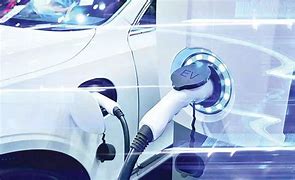Islamabad, Dec 16: The Pakistan Institute of Development Economics (PIDE) has proposed that by 2030, 10% of all vehicles in Pakistan should be electric (EVs).
As part of its recommendations for the upcoming Electric Vehicle (EV) Policy, PIDE has introduced a comprehensive framework titled ‘Future on Wheels’ to support a robust EV policy, following the Prime Minister’s call for one.
These suggestions are based on PIDE’s recent publications on the country’s automobile industry, including ‘Driving Backwards: What is Wrong with Pakistan’s Automobile Industry?’ and ‘Wheels of Change: Tracing Pakistan’s Automotive Evolution through Political Economy and Technology Acquisition.
’ The framework sets long-term goals for EV development, with short-term targets for 2030 aiming for 10% of new 4-wheelers and 25% of new 2/3-wheelers to be EVs. By 2040, PIDE expects these figures to rise to 50% for 4-wheelers and 75% for 2/3-wheelers.
The policy also sets a goal for 50% of all new 4-wheelers and 2/3-wheelers produced in Pakistan to be EVs by 2035.
PIDE also emphasizes the integration of Pakistan’s automobile sector into the global EV supply chain. It recommends reducing customs duties on EV components and significantly boosting production to increase exports. The aim is for 10% of all EVs and 5% of auto parts produced in Pakistan to be exported by 2030, with exports growing to 50% by 2040.
To support this transition, PIDE advocates for joint ventures between local and foreign automotive companies to enhance EV production through technology transfer and capital investment. It also calls for the government to foster investment through Government-to-Government (G2G) and Government-to-Business (G2B) partnerships. Additionally, the State Bank of Pakistan (SBP) is urged to establish a Green Financing Plan to assist with financing EV production, manufacturing facilities, and charging infrastructure.
PIDE stresses the need for investment in Research & Development (R&D) to advance EV technology and reduce production costs. A dedicated research fund should support R&D efforts, especially in battery reuse, reducing costs, and safe disposal of battery waste.
By adopting these recommendations, PIDE envisions a competitive and sustainable EV industry in Pakistan that drives economic growth, supports environmental sustainability, and integrates the country into the global EV market.









